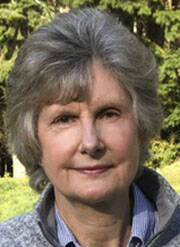Efficient transportation is one part of the Kitsap County Comprehensive Plan Update and one of the keys to sensible and sustainable growth over the next 20 years.
Transportation is all about how people connect with one another—between home, work, school, parks, neighbors and more. The transportation plan is tied to land use that in turn will affect reclassifications or zoning changes and the balance between Urban Growth and rural areas. Transportation planning affects the other goals in the Comp Plan update including housing/human services, economic development, parks and recreation access as well as the new climate change goal.
The three county commissioners approve the final transportation choices for the Comp Plan update that is due to the state at the end of 2024. Following are issues related to transportation in North Kitsap to help understand their impacts and to allow you to communicate what your priorities are to the county commissioners.
Climate Change: This year a new climate change goal is added to the Comp Plan update. County transportation plans need to consider how to reduce greenhouse gas emissions with an emphasis on efficiently moving people (not necessarily personal vehicles) by increasing bus service and the ability to safely use non-motorized transportation—such as walking or riding bicycles—through existing transit corridors rather than creating new ones.
County vs. state roads: NK will rely heavily on several state highways including 3, 305, 307 (Bond Road) and 104. Those roads serve us as well as connect the Olympic Peninsula to the rest of the state. Kitsap staff will coordinate transportation planning and design with several agencies including the state Department Of Transportation, Puget Sound Regional Council and Peninsula Regional Transportation Planning Organization for unincorporated Kitsap. State roads will first need funding approval by our state legislatures and coordination with WSDOT. One such project is moving inbound ferry lanes in the Port of Kingston and installing an overflow car ferry ticket system.
Public transportation and growth: Kingston has two weekday bus routes that serve people commuting on ferries. Route 302 serves Suquamish, Indianola and West Kingston Road to the Port of Kingston. Route 307 runs from the Poulsbo North Viking Transit Center, along Highways 307 and 104 to the Port. There is no bus service for the 741-home Arborwood development and the 254-home Port Gamble development. Studies have found that adding more lanes will not decrease traffic flow—more lanes just encourage people to use cars vs. public transport. Conversely, when faced with roadway bottlenecks, people find other ways to travel, including buses/trains and bikes, to improve commutes. Unfortunately, many parts of county and state roads, including West Kingston Road, Highways 307 and 104, are not safe for cycling or walking — that will be noticeable once major housing developments reach significant buildout by 2026. Neither the current WSDOT or Kitsap transportation budgets have improvements for safe non-motorized travel along those major county and state roads through North Kitsap County.
Given the complexity of the many transportation issues, what are your priorities for North Kitsap County? What balance among public transit, non-motorized transportation, and private vehicles do you want to see? For example, rezoning rural land for greater housing and commercial density creates sprawl outside the defined urban growth area. No road improvement plans, and lack of county or state funding, makes commuting to jobs, schools, shopping and recreation more difficult and even dangerous.
What planning is needed so the rural environment we enjoy is maintained for a healthy and safe lifestyle for both current NK residents and the inevitable population growth? The opportunity to plan unincorporated Kitsap’s future is happening now. Make your ideas known to the county by sending your comments to compplan@kitsap.gov.
Robin Salthouse is a retired librarian who has volunteered for several environmental and land conservation organizations.



